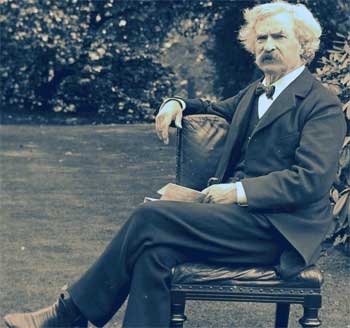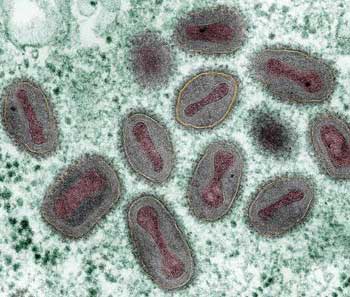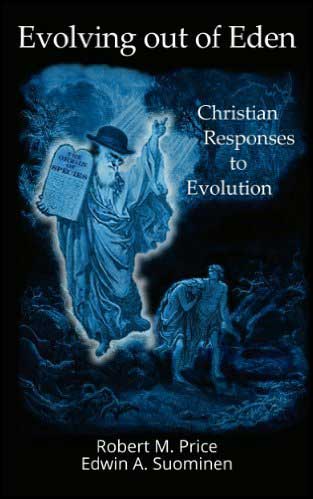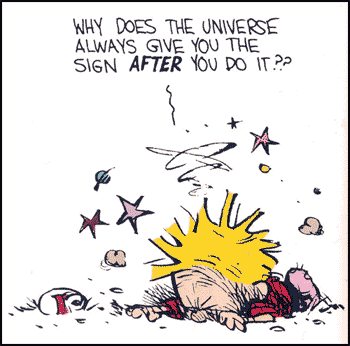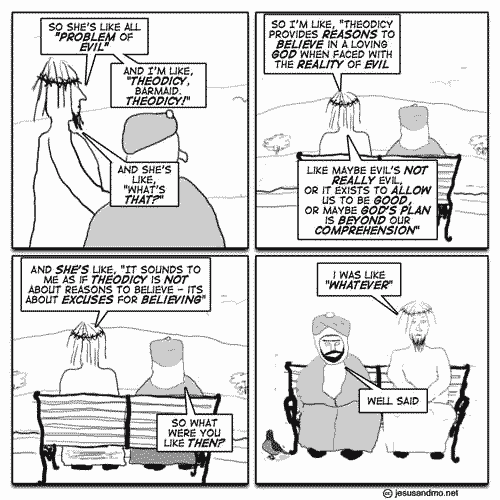
Duke University Medical Centerʼs Epidemiologic Catchment Area survey (Meador, Koenig, Hughes, Turnbull & George, 1992) examined the relationship between religious affiliation and major depression. The six-month prevalence of major depression among Pentecostals was 5.4 percent compared to 1.7 percent for the entire sample.
Suicide occurs among Christians at essentially the same rate as non-Christians… Suicide kills a disproportionate number of young people and the elderly, and it has become increasingly prevalent among returning veterans [many of whom are Christians]. More active duty soldiers now die from suicide than from combat. A 2012 Dept. of Veterans Affairs study found that 22 veterans on average kill themselves each day, totaling more than 8,000 a year. Al Hsu, “When Suicide Strikes in the Body of Christ,” Christianity Today [online, April 9, 2013] Hsu is the author of Grieving a Suicide: A Loved Oneʼs Search for Comfort, Answers and Hope (InterVarsity Press, 2002)
Jarrid Wilson, cofounder of Anthem of Hope a Christian mental health organization, committed suicide at the age of thirty (died September 9, 2019). He was a graduate of Liberty University and Hope International University, pastor at Harvest Christian Fellowship--a megachurch in Riverside California, and author of several books, including, 30 Words: A Devotional for the Rest of Us; Jesus Swagger: Break Free from Poser Christianity; Wondrous Pursuit: Daily Encounters with an Almighty God; Love is Oxygen: How God Can Give You Life and Change Your World. On the day of his suicide Jarrid had officiated at another Christian's funeral and tweeted this:
"Officiating a funeral for a Jesus-loving woman who took her own life today. Your prayers are greatly appreciated for the family."
He died a day before World Suicide Prevention Day.
Daughter of Pastor Frank Page (who served as President of the Southern Baptist Convention from 2006 to 2008) ended her life in 2009. The tragedy was kept quiet. For years, Page did not share the painful details of Melissaʼs death, fearing that some Christians might speak ill of her if they knew. Mental illness and suicide were taboo topics for many churches, seen as a kind of spiritual failure.
The son of the influential minister who wrote the mega-bestseller, The Purpose Driven Life, committed suicide. “Matthew Warren, Son of Influential Minister, Dies at 27” by Ravi Somaiya, New York Times, April 6, 2013
(In comparison neither of the daughters of the apostate author of a book titled, The Reason Driven Life—which was written in response to The Purpose Driven Life—have committed suicide. Nor did the daughters of Americaʼs Great Agnostic, Robert G. Ingersoll. Though some lovely Christians did try and spread the rumor that Ingersollʼs son had committed suicide until it was pointed out by Ingersoll that he never had a son. On the other hand, it must be admitted there have been cases of depression and suicide in the Darwin family tree, admittedly a fairly large tree by this day and age.)
Baptists in the Carolinas are soul searching after a spate of suicides and suicide attempts by pastors. In addition to the September suicide of David Treadway, two others in North Carolina attempted suicide, and three in South Carolina succeeded, all in the last four years.
Pastors: Mental Illness and Suicide — Rev. Teddy Parker Jr., 42, pastor of Bibb Mount Zion Baptist Church in Macon, Georgia, discovered by his wife in the driveway of their home, dead from a self-inflicted gun-shot wound. Ed Montgomery, 49, a pastor at Full Gospel Christian Assemblies International Church, Hazel Crest, Illinois, takes his own life in front of his son, after grieving the death of his wife who had died a year earlier from a brain aneurysm. Isaac Hunter, 36, founder and pastor of Summit Church in Orlando, Florida, admits to an affair that leads to his resignation, and while suffering from a troubled marriage he ends it all by killing himself… These events, which took place within the last five weeks, show we are all susceptible to mental illness - even the preacher… Iʼve personally been in that dark place myself. By Rev. Mark. H. Creech, Christian Post Columnist
Pastor Who Confessed: There Are Times ‘I Donʼt Feel Like God Is Hearing Me’ Kills Self as Congregation, Family Wait for Him on Sunday—“What I have always advised younger men in the ministry to do is to try to find someone who can be your pastor outside your congregation… You canʼt let anyone in your church be your pastor. You are their pastor,” he warned. The competitive nature of pastors hurts healthy camaraderie in the profession. “Every pastor needs a pastor to kind of lead and guide them. But itʼs hard for us to really find that relationship because often pastors are trying to compete with or cremate you… Thatʼs a sad truth about the ministry,” agreed Land, who is also executive editor of The Christian Post. “I love pastors. They are in good grace, but most of them are pretty competitive when it comes to other pastors.”
Why do Christians Kill Themselves? According to Christian apologist, C. Michael Patton…
…For the same reasons non-Christians kill themselves. Lifeʼs circumstances fare no better for believers than for others. The divorce rate is the same, cancer rate is the same, just as many Christians find themselves out of work as non-Christians, and tragedy is no less likely to enter our lives than others. In fact, one might make the case that Christians have much more temptation to do so… We believe that we are in a hostile world that is filled with evil and evil powers… I have often wondered if suicide was not more of a temptation for Christians (in one respect) due to the fact that we know we will be out of pain and with God. In short, the circumstances that cause one to be so distraught with life that they are willing to take their own life exist just as much (if not more so) with Christians as they do with non-Christians.
Suicidal Thoughts on Suicide by C. Michael Patton, Christian apologist
(Christian apologist, C. Michael Patton, who wrote the lines above had a sister named Angie who committed suicide. After that his father started drinking heavily, a seeming death wish that he never recovered from. His father died at 66, the official cause being pneumonia. The actual cause was the type of guilt that hopes for death and does not care about physical health and refuses to check into a hospital when pneumonia is about to take his life. Michaelʼs mother continued to suffer depression after her daughterʼs (Michaelʼs sisterʼs) suicide. She cried for two years as her blood pressure rose. Finally an aneurysm ruptured and left her paralyzed; a different person. Michael and his remaining sisters have experienced significant depression since their sisterʼs suicide. Michael writes about his bouts with suicidal depression on the same blog where he defends the Gospel.)
Another Christian apologist from my own city, Greenville, SC, Johnny Price, and who has been hard at it as a local apologist in print and other media for decades admitted in 2016 in a public Facebook post:
Since I re-entered the world of Facebook back in October 2015, Iʼve deliberately not posted anything personal. This is an exception. I am mentally ill. Iʼve suffered from various emotional disorders (mostly depression) since March, 1999. Currently it manifests itself in daily bouts of angst and uncertainty — sometimes severe, occasionally nearly immobilizing — when my feelings (!) of adequacy and worth take a beating.
Still another Christian writes…
Depression is a clinically-diagnosed mental illness. Itʼs also a relentless and evil sonofabitch. Itʼs not selfish to struggle with depression. Itʼs not a lack of understanding about God and his creation. Itʼs not something to be ashamed of. Call it what you want - Godʼs grace, luck, fate - but when I was sitting on the tile in my bathroom almost 5 years ago, I saw just a small sliver of light. Just enough to make me take a breath and look at the pills in my hand. It was enough for me to drop them and watch them scatter all over the cold floor. I still donʼt know what it was that opened my eyes and mind that night, but it was enough for me to not go through with swallowing them all. But, there are so many people, like the brilliant Robin Williams this week, who arenʼt granted that little sliver of light… And thereʼs another kind of evil lurking around the halls of the depressed, and itʼs the belief that those who are stricken with depression (or any mental illness) are suffering because of their lack of faith in Jesus. “If only youʼd pray for more joy,” people say. “If only youʼd ask God to take the pain.” Or, “Is there unresolved sin in your life?” Or how about this one, “If youʼd just meditate more on Godʼs Word…” Folks, saying someone is depressed or suicidal because they arenʼt praying enough, are self-absorbed, sinful, or donʼt have a deep enough faith? Itʼs abusive. And it needs to stop. Now… Sometimes, healing happens through good doctors, counselors, practitioners, and yes, medicine. Godʼs grace can look like a sliver of light on the bathroom floor, but it can also look like a life-changing counseling session or the right combination of drugs to regulate your brain chemistry. Prayer and a deepening faith have helped many along the road to depression. But it doesnʼt always work out that way. It didnʼt for me…
Nish Weiseth, “Thoughts on depression, suicide and being a Christian,” August 12, 2014. Nish is an Evangelical Christian and author who also writes pieces for Christianity Today on her experience of being a non-Mormon (a religious minority) in Utah.
Suicide Survivors: How the Clergy Can Help or Hurt You — “I have spoken with countless suicide survivors who have been deeply hurt by comments that ministers have made… I have been to funerals for angels who died by suicide when ministers have rambled on and on about suicide being a ‘sin.’ In spite of that horrible, unforgivable ‘sin,’ they said there may still be ‘hope’ that the person who died may actually go to Heaven. Many churches in the past would not even perform a funeral for someone who died by suicide because the ‘sin’ of suicide was so grievous and unforgivable… The ‘suicide is a sin’ mentality is still extant for many.”
Suicide in Jewish Tradition
Was typically frowned upon EXCEPT for cases in which suicide was undertaken for RELIGIOUS REASONS including mass suicide, which was regarded with veneration. This veneration is understood in the context of the doctrine of Kiddush ha-shem, i.e., ‘sanctification of the divine name’ which stated that suicide could be acceptable or even glorifying to God if one thereby avoided becoming a vehicle for desecration of His name in instances of rape, slavery or forced religious conversion to a non-Jewish religion. The best known example of this is Massada but mass suicides amongst persecuted Jewish communities continued to feature in Germany, France and Britain during the Middle Ages.
Suicide in Early Christian Tradition
Martyrdom was highly regarded by the early church and the boundary between it and suicide proved to be a narrow one. Tertullian addressing Christians in prison who were awaiting martyrdom, encouraged and strengthened them by citing the example of famous suicides including Lucretia, Dido and Cleopatra. Chrysostom and Ambrose both applauded Palagia, a girl of 15 who threw herself off the roof of a house rather than be captured by Roman soldiers. In Antioch, a woman called Domnina and her two daughters drowned themselves to avoid rape, an act which, as in the case of the Jews, was venerated.
Jerome also approved of suicide for religious reasons and did not condemn austerities which undermine the constitution and which might be regarded as slow suicide. He recounts, with the greatest admiration, the life and death of a young nun named Belsilla who imposed such penalties on herself that she died. Martyrdom eventually became so popular amongst the more fervent believers such as the Donatists that it threatened the credibility and, in places, the very existence of the church. How to respond to this fervour was a difficult task for leaders of a religion founded on Jesusʼs voluntary submission to death and whose early leaders had all been slain in the course of duty.
It was Augustine who synthesized Platonic and Jewish traditions on suicide in a way that gave greater emphasis to the former. In “The City of God” he concluded that suicide was never justified, not even in the cases mentioned above in Jewish and early Christian tradition. By the 5th century suicide was regarded by the church as sinful in all circumstances.
Suicide in the Middle Ages
Apparently suicidal depression was common in the Middle Ages because numerous guides survive that were written to instruct clergy how to go about ministering to those who were suicidal. Such guides emphasized keeping the person under close observation, keeping them busy, making them comfortable with warmth, food and music, and prescribing religious exhortation, as well as citing past success stories in which suicide was averted, and offering absolution from sins. Even in cases where the suicide was successful clergy held inquests and the records reveal that in the majority of the verdicts the suicide was attributed to a disturbance of the mind rather than the soul. As in the case of Jewish tradition this enabled the dead person to receive formal rites of burial. Throughout this period we see a dissonance between what the theologians taught concerning the horrendous nature of the sin of suicide, and what the clergy actually practiced. As for what the public believed, ‘folk’ superstitions concerning suicide proved remarkably resistant to change and persisted right up until the mid-nineteenth century, such as a belief that suicides were buried at crossroads.
Suicide From the 1600ʼs to Today
In the seventeenth century, under the influence of the new spirit of inquiry, the more educated classes began to question the prevailing view that suicide was always wrong. John Donne, who was for a while himself prone to suicidal urges, wrote a treatise called Biathanatos in which he tried to prove (rather unsuccessfully as it happens) that self murder was not a sin. Interestingly, he cites as support the contemporary practice of euthanasia in which female relatives of those who were dying and for whom nothing more could be done would assist death by removing the patientʼs pillows. Donne records that this was common practice and that it was regarded as a ‘pious act,’ reflecting the fact, again, of a wide divergence between what the church taught and what society as a whole actually practiced. The term ‘suicide’ was first coined by Walter Charlton in 1651 as a bid to rid it of the criminal and sinful associations which had previously stuck to it. Although his exercise at moral sanitization failed the term itself stuck.
Laws were introduced in the early nineteenth century to punish those who attempted suicide or who assisted others to end their lives. Just as in the ancient world the upper classes (particularly those of a more artistic bent) were spared the indignity of imprisonment and for a while suicide even came to enjoy a bit of a vogue amongst the romantics. The lower classes, however, could expect a sentence of 10 days with compulsory counseling from a clergyman. Subsequently even stiffer sentences were imposed and between 1944 and 1955 13% of the 40,000 who attempted suicide were prosecuted; 308 of these were sent to jail and even in 1955 a man received a two year jail sentence, although this was subsequently reduced to a month.
Suicide only ceased to be an indictable offence in 196l and continues to be an offence for those who aid or abet, counsel or procure the suicide of another (Suicide Act 1961). The ostensible aims of such sentences were to discourage suicide as a phenomenon, although it is hard to be sure that some of the wish to punish wasnʼt due to misplaced anger towards those who were regarded as a social nuisance, a spirit which lives on in many medical wards and admissions units.
The nineteenth century was a time in which men started to collect data and to apply scientific method to the social evils of the day. Professor Olive Anderson has written extensively about suicide at this time. Her researches indicate that, despite the prohibitions, suicide rates in the UK started to climb, especially among men, from the mid-1800s onwards. Although the sociologist Emile Durkheim blamed the ‘anomie’ of modern industrial society, the process of industrialization cannot be entirely held to blame since suicide rates were highest in the old county towns. At this time suicide continued to be associated in the public eye with sin but the finding that it also showed a strong association with alcohol abuse, poor physical health and poverty sensitized the public towards a more sympathetic and understanding attitude, itself assisted by the rise of the popular novel in which the suicides of the wronged, abandoned and destitute often featured.
However, poverty was also popularly identified in many a Victorian mind as the just deserts of a life given over to sin; considerable debate thus took place over which of the poor should be seen as ‘deserving’ and which were beyond help. Under these combined influences those who saw themselves as having a responsibility to promote public order developed a variety of social and philanthropic programs to combat suicide.
Suicide is less common during wartime and times of national crisis. Conversely, suicide rates increase after a celebrity takes their life or a suicide is displayed on television.
Churches would do well to become aware of the problem of depression and its treatment since Christians are by no means immune from depression or suicidal thinking. (In fact, despair even to the point of suicidal thoughts, was something experienced by a number of figures in the Bible who are presented in a favorable light from Paul to Job, David, Jeremiah and Elijah.)
Christians would also do well to become more concerned about social justice and more vocal in their opposition to the real social evils of society. Alcoholism, marital breakdown and unemployment are far more serious issues than, say, the New Age movement or whether women should be ordained.
However, the question remains ‘Are there ever circumstances which render it legitimate to end oneʼs own life?’ The ancient Jews and early Christians clearly thought so. Nowadays we face new dilemmas concerning medicineʼs increasing ability to sustain and prolong life beyond that determined by natural processes.
Much of the above is from Russell Blackerʼs article, Suicide Down the Ages - A Judeo-Christian Perspective, on the website of The Christian Medical Fellowship (CMF).
On suicide. “Rationally Speaking” is a well known blog and podcast by an atheist philosopher. See here, here, here, for discussion of suicide, i.e. what empirical inquiry tells us about suicides (who commits them, how, what are the best strategies for prevention) and how philosophers view suicide.
What does a nihilistʼs nihilist think of suicide? Forget Camus for a sec and read these quotations from E. M. Cioran:
When people come to me saying they want to kill themselves, I tell them, “Whatʼs your rush? You can kill yourself any time you like. So calm down. Suicide is a positive act.” And they do calm down.
We dread the future only when we are not sure we can kill ourselves when we want to.
Why donʼt I kill myself? If I knew exactly what keeps me from doing so, I should have no more questions to ask myself since I should have answered them all.
Only optimists commit suicide, optimists who no longer succeed at being optimists. The others, having no reason to live, why would they have any to die?
It is not worth the bother of killing yourself, since you always kill yourself too late.
The obsession with suicide is characteristic of the man who can neither live nor die, and whose attention never swerves from this double impossibility.
If death is as horrible as is claimed, how is it that after the passage of a certain period of time we consider happy any being, friend or enemy, who has ceased to live?
In a world without melancholy, nightingales would start burping.
What would be left of our tragedies if an insect were to present us theirs?
Life inspires more dread than death—it is life which is the great unknown. (Or as Bertrand Russell put it, “We all have a tendency to think that the world must conform to our prejudices. The opposite view involves some effort of thought, and most people would die sooner than think— in fact they do so.”)
The Lighter Side of Suicide?
Suicide is manʼs way of telling God, ‘You canʼt fire me - I quit.’—Bill Maher
Potential suicides should keep in mind that itʼs a decision they have to live with for the rest of their lives.—paraphrase of something Paul Tillich wrote
I am constantly torn between killing myself and killing everyone around me.—David Levithan
The thought of suicide is a great consolation: by means of it one gets through many a dark night.—Friedrich Nietzsche
There comes a time when you look into the mirror and you realize that what you see is all that you will ever be. And then you accept it. Or you kill yourself. Or you stop looking in mirrors.—Tennessee Williams
The only difference between a suicide and a martyrdom really is the amount of press coverage.—Chuck Palahniuk
I went to the worst of bars hoping to get killed but all I could do was to get drunk again.—Charles Bukowski
If I had no sense of humor, I would long ago have committed suicide.—Mahatma Gandhi
Once I tried to kill myself with a bungee cord. I kept almost dying.—Steven Wright
Thereʼs no reason to live, but thereʼs no reason to die, either… Life is not worth the bother of leaving it.—Jacques Rigaut
The New York Daily News suggested that my biggest war crime was not killing myself like a gentleman. Presumably Hitler was a gentleman.—Kurt Vonnegut, Mother Night
If the pain was constant and unbearable, or I was struggling for every breath and unable to sleep, I might consider suicide. I donʼt think Iʼve ever been the suicidal type because I have lots of addictive interests including making music. If the question is metaphysical, then I would add that metaphysics is sometimes full of bullsh*t. The thought of everything eventually perishing can create angst but not necessarily suicidal thoughts.
Cecil Wyche [agnostic, non-Christian, though interested in religious philosophy]
Devout Mormon Threatened to Harm Himself Unless His Brothers Stopped Cursing, Leaps to Death Rather than Endure Listening to Any More Profanity—(KSL News) Police now say an argument caused a 21-year-old man to jump from a moving truck. “Tyler Poulson was riding with his brothers last night when he became offended by one of them using profanity. Poulson, who recently returned from an LDS mission, threatened to get out of the truck if he continued. One of the men, not thinking he would, told Poulson to do so. Police said the car was going about 35 miles an hour when Poulson opened the door and jumped. He was pronounced dead on scene.” Posted Nov 12th, 2005
